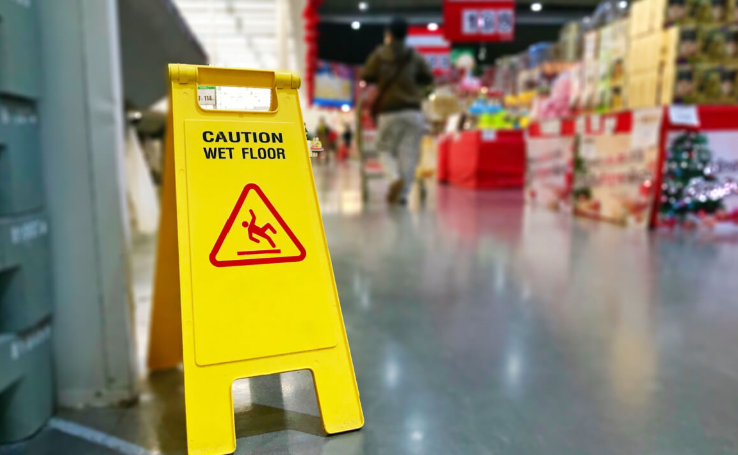
BOOK A FREE CONSULTATION!
How File a Personal Injury Lawsuit in California! a Must to Know.
You are only 5 steps away from a legal recovery for your personal injury claim.
Priority one is to begin medical treatment! Medical treatment will bring bills soon. How do you pay for your medical bills? Insurance coverage may be available depending on the severity of your injury. However, it is often insufficient.
If you have more money to pay for your injuries than your insurance will cover, the next step might be to sue the person or company that caused them.
California’s civil court system has the purpose of making a plaintiff “whole” or returning you to your financial position prior to the accident or injury.
You’re more likely to file an injury claim for personal injuries in California if you choose one of the following three venues:
- Division of Workers’ Compensation for a injury at work
- Small Claims Court for claims less than $10,000
- California civil courts (Superior Court), for amounts greater than $10,000
How to Sue for an Injury at Work
California Workers’ Compensation is designed to cover work-related injuries and protect employers from lawsuits.
Most of the time, your only recourse for a workplace injury is to file a claim with the California Department of Workers’ Compensation. In a limited number of cases, a work-related accident could lead to a lawsuit for personal injury.
You may be able to sue if your injury resulted from a defective product, such as a defective safety harness.
Workers’ compensation lawyers can help you determine the best course of action for recovering from work-related injuries.
How to File a Claim With the Small Claims Court
Small Claims Court should be used if your claim is less than $10,000.
Most Small claims courts in your locality will charge nominal filing fees for those who wish to settle their claims without an attorney. Check with your local municipality to find out the rules, fees and procedures for filing in small claims court.
Small claims court requires that you present your own evidence, and small claims only cover compensatory damages, or expenses associated with an injury. You will need to provide copies of the contract at issue, receipts, canceled check, bills, photos, or any other proof you can.
If the defendant does not appear in court at the appointed time, the case is automatically dismissed and a judgment will be entered for you.

BOOK A FREE CONSULTATION!
Knowing How to File a Personal Injury Lawsuit in California
If the injury is not related to work and the damages exceed $10,000, the claim will be handled by the California Civil Court System.
Step 1: Establish Legal Standing
To file a suit in California you need legal status. Legal standing is your right to sue. You must have the following to be considered legally standing:
- Be directly related to what is being sued. You must be directly affected by the defendant’s actions or inaction.
- Be a legal entity. You must be a legal entity (corporation, government agency, nonprofit organization, etc.). ).
- Legal capacity. Legal capacity is not available to children under 18 or adults who are incompetent due to illness, old age, or infirmity. A person with legal capacity may file a lawsuit on behalf of someone who does not.
In a lawsuit there can be more than one plaintiff, or more than just one defendant. However, the court must be convinced each plaintiff has the same interests in the case.
Step 2: Hire an Attorney
It could be that this is the most crucial step to filing a suit. The choice of an attorney is a personal and important one. It’s important that you find a lawyer who “clicks”. You will need to feel comfortable with sharing personal information with your attorney, and trust them to be your best ally and advocate during your legal process.
Step 3: Choose the Court Where You Will File Your Lawsuit
The location of your filing is the .
The county in which the lawsuit is filed must be:
- Where the majority of witnesses or injury occurred
- The defendant resides or has their principal place of business
- You have a principal place of business or you live there
Your lawyer will be able to advise you on the best venue for your case.
Step 4: You Must File Your Claim Before the Expiration Date
The statutes of limitations are the deadlines within which you can file a lawsuit. You lose the right to sue if you miss the deadline.
The statute of limitations in each state varies depending on the type and severity of an injury.
Step 5: File a Complaint
Your lawyer will often try to negotiate with the defendant before filing suit. Everyone benefits if the two sides can reach an agreement to keep the case out of court.
Your lawyer will submit a complaint and summons to the court if the parties cannot come to an agreement.
- Summons : Informs the defendant of their legal action.
- Complaint : Describes the circumstances surrounding your injury, the defendant’s responsibility, and the amount of damages you are seeking.
As a plaintiff, your job is to give the evidence that you have gathered to your attorney. Your lawyer will evaluate the evidence and gather more information from investigators and experts. They will also negotiate with the defendant in order to reach a settlement.
When the Complaint Is Filed Things Start to Heat Up.
There will be months (or even years) of preparation for a trial if your lawyer and other parties cannot reach a settlement. This includes finding experts and exploring the possibility of additional evidence.
You may have to wait until your lawyer gives you the next instructions. You may be required to attend depositions, which are questions asked under oath by the lawyers of the opposing party. Or you might need to provide additional evidence or submit to further medical examinations. The nature of the case, and the arguments that the lawyers plan to make, will determine what you have to do.

We Are With You Every Step of the Way
At Tenina Law, we provide comprehensive support throughout every stage of your case.
From skillful negotiations to thorough investigations, we’re dedicated to advising you on the optimal path forward. We meticulous investigate and leave no stone unturned in pursuit of justice.
“Still doubting on How to File a Personal Injury Lawsuit in California?”
Reach out today to initiate a conversation about your case and how we can assist you.







[…] monetary award for your personal injury case does not matter whether it is a result of a court verdict or a settlement reached outside the […]
[…] from California residents must provide one of two notices if the statute of limitation for filing a lawsuit to collect the debt has […]